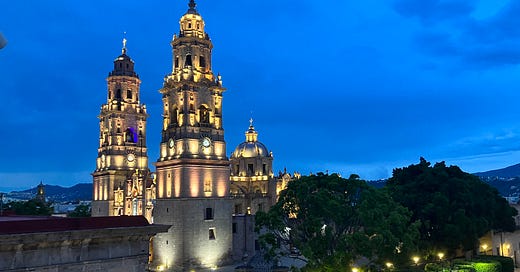Monday Dribs and Drabs
[Catedral de Morelia, San Salvador. First construction in 1660, completed 1744]
How reporting works in the mainstream media:
A story comes in illustrating the ongoing racism of American society.
What do you do?
Obviously, you avidly report on it, over and over again from every angle. Make sure especially to focus blame on anyone else who didn’t report on …




